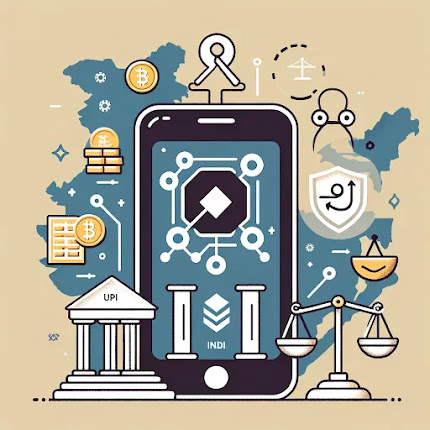India’s Fintech sector is rapidly transforming and is driven by digitalization, innovation, and government initiatives to enhance financial inclusion. The adoption of mobile payments, blockchain, and AI is reshaping how consumers and businesses access financial services. Let’s explore the key trends, future prospects, and how regulations are shaping the sector.
Key Trends in Indian Fintech
Mobile Payments: The rise of UPI (Unified Payments Interface) has revolutionized payments, allowing seamless, real-time transactions. Apps like Google Pay, PhonePe, and Paytm are leading this space, pushing India toward a cashless economy.
Digital Lending: Fintech companies disrupt traditional lending models by offering quick, digital loans to underserved populations. These platforms use AI and data analytics to assess creditworthiness, bypassing traditional credit scoring methods.
Blockchain and Cryptocurrencies: Blockchain technology is gaining traction in India, particularly for secure, transparent financial transactions. While cryptocurrencies face regulatory scrutiny, blockchain is being explored for various economic applications.
AI and Data Analytics: AI improves customer experiences, provides personalized financial services, and detects fraud. AI-driven tools enhance financial institutions' decision-making and bring innovation to the sector.
Regulatory Landscape and Central Bank Policies
India’s regulatory framework for Fintech is primarily overseen by the Reserve Bank of India (RBI), the Securities and Exchange Board of India (SEBI), and the Ministry of Finance. The regulatory environment has been a balancing act between fostering innovation and maintaining financial stability.
UPI and Digital Payments: The RBI plays a crucial role in ensuring the safety and security of digital payment systems, encouraging innovation while safeguarding consumer interests.
Digital Lending Regulation: The RBI recently issued guidelines to regulate digital lending platforms, ensuring transparency, preventing unethical practices, and addressing privacy concerns.
Cryptocurrency Regulations: While blockchain is supported, cryptocurrencies remain under scrutiny. The Indian government has proposed the Cryptocurrency and Regulation of Official Digital Currency Bill, which could shape the future of cryptocurrencies and potentially introduce a Central Bank Digital Currency (CBDC).
Future Prospects
India’s Fintech future looks promising, with the sector expected to grow exponentially. Key drivers include:
Financial Inclusion: Fintech innovations are helping the unbanked and underbanked populations access financial services, bridging the urban-rural divide.
AI and Automation: AI will continue transforming customer experiences, enhancing risk management, and bringing efficiency to financial services.
Expansion of Digital Infrastructure: As India improves its digital infrastructure, particularly in rural areas, the penetration of Fintech services will expand, enabling wider adoption of digital payments and lending platforms.
The future of Fintech in India is bright, with trends such as mobile payments, digital lending, and blockchain shaping the industry. While regulations are crucial to maintaining financial stability, they also encourage innovation. As a PhD researcher focusing on AI and Fintech, I am particularly excited to see how AI and emerging technologies will further transform India’s financial services landscape.

Comments
Post a Comment